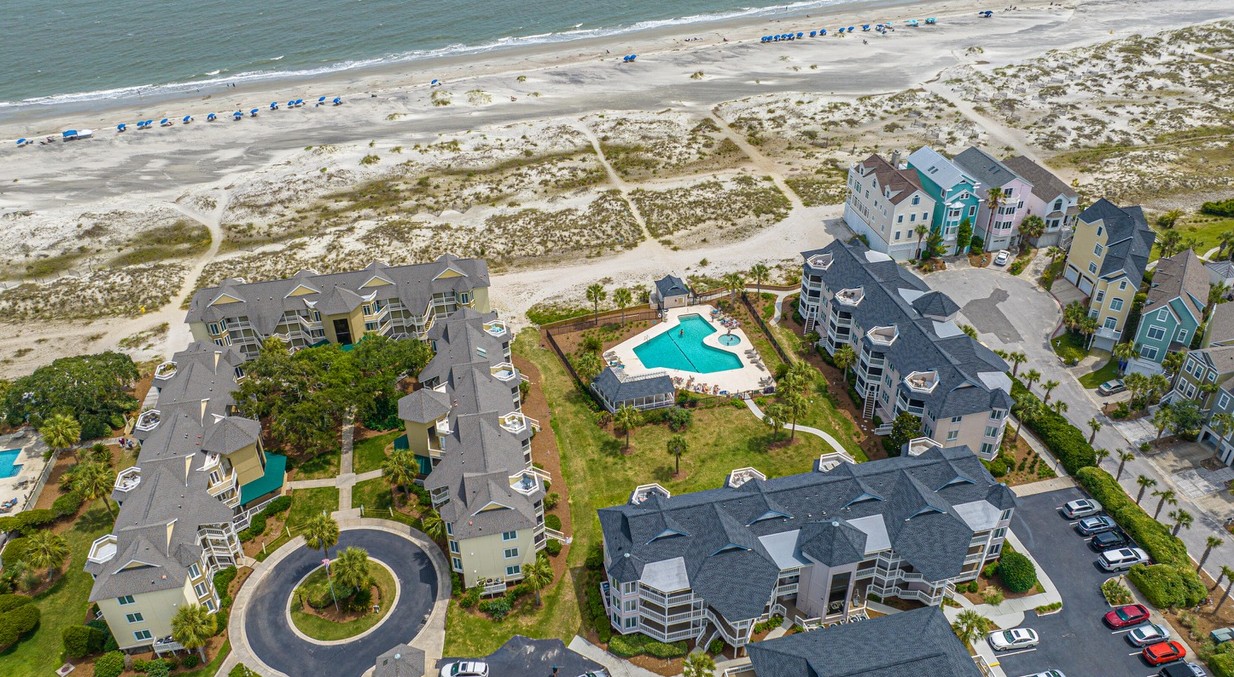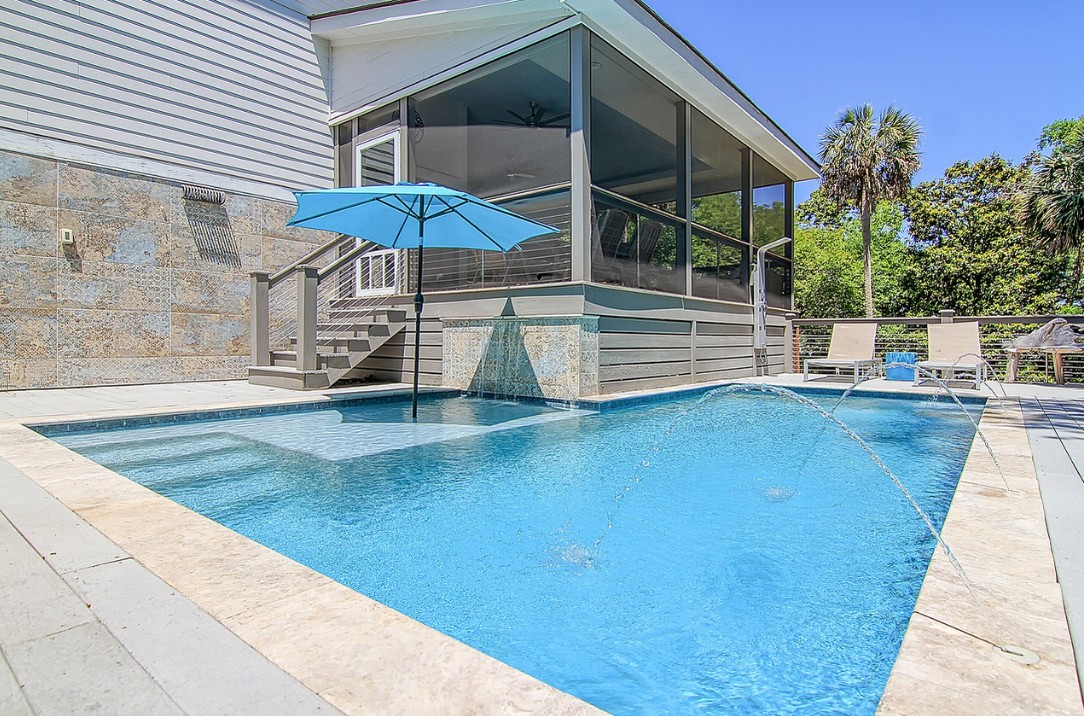The Impact of Guest Reviews on Short-term Rentals Pricing
-
- Exploration of How Guest Reviews Impact Booking Decisions
- Role of Review Platforms and Their Influence on Guest Perceptions
- Examination of the Correlation Between High-Rated Properties and Pricing Strategies
- Responding to Guest Feedback and Its Influence on Pricing
- Analyzing the Effect of Negative Reviews on Booking Rates and Pricing Strategies
- How to ask guests for reviews without being pushy
In the rapidly evolving landscape of the vacation rental industry, guest reviews have emerged as a powerful force influencing the success of property owners and managers. As travelers increasingly rely on online platforms to book their accommodations, the significance of guest reviews in shaping booking decisions cannot be overstated. By analyzing a wide range of real-life case studies and industry data, this study seeks to provide valuable insights for property owners and managers looking to harness the power of guest reviews to enhance their pricing strategies.
Guest reviews play a pivotal role in the vacation rental industry, shaping the way potential guests perceive and choose their accommodations. These reviews are authentic reflections of past guests' experiences, providing valuable insights into the property, its amenities, and overall hospitality. In today's digital age, popular online booking platforms such as Airbnb, Vrbo, Booking.com, and TripAdvisor have become go-to resources for travelers seeking to make informed decisions.
The significance of guest reviews lies in their ability to build trust and credibility. Research shows that over 90% of travelers read online reviews before making a reservation. Positive reviews act as powerful endorsements, instilling confidence in potential guests that their stay will be enjoyable. On the other hand, negative reviews can raise red flags and deter prospective guests from booking a particular property. As such, property owners and managers must pay keen attention to guest reviews and proactively address any concerns raised to maintain a positive reputation.
One key aspect of pricing tools is their integration with popular booking platforms like Airbnb, HomeAway, and VRBO. For more information on how short-term rental tools work, please refer to the "Short-term rental pricing tools" section.

Exploration of How Guest Reviews Impact Booking Decisions
Guest reviews have a profound influence on travelers' booking decisions. According to studies, a property with 5-star reviews is 80% more likely to be booked compared to one with a 4-star rating. Moreover, over 70% of travelers are willing to pay more for a property with consistently positive reviews.
- On Airbnb, reviews are rated on a 5-point scale, where 5 stars represent an exceptional experience and 1 star denotes a subpar stay. The average review score acts as a quick reference point for guests to assess a property's overall quality, and an average score of 4.5 or above is generally considered good for attracting bookings.
- On platforms like Booking.com, reviews are typically rated on a 10-point scale, where a higher score indicates a more positive experience. A property with a high average review score, such as 9.0 or above, is more likely to attract bookings and gain the trust of potential guests.
Additionally, the number of reviews also matters. Properties with a substantial number of reviews (e.g., 50 or more) are often perceived as more trustworthy, as they represent a broader range of guest experiences. A higher volume of recent reviews can also signal that the property is actively managed and provides up-to-date service and amenities.

Role of Review Platforms and Their Influence on Guest Perceptions
Review platforms, such as Airbnb and Vrbo, hold substantial sway over guest perceptions and booking decisions. These platforms provide a centralized space for guests to leave feedback and share their experiences, creating a sense of community and transparency. Prospective guests can browse through reviews, filter them by relevant criteria, and gain insights into specific aspects of the property, such as cleanliness, amenities, and location.
Property owners should prioritize their presence on reputable review platforms and encourage guests to leave reviews after their stay. Aim for a response rate of at least 80% to show active engagement with guests' feedback. Reviews should be consistently monitored and used to identify areas of improvement. Addressing negative reviews promptly and professionally can demonstrate a commitment to guest satisfaction and improve overall ratings.
Reviews are a critical factor in a guest's decision-making process. Review numbers and scores are considered the second most important factor after photos when guests are choosing a vacation rental
Examination of the Correlation Between High-Rated Properties and Pricing Strategies
The correlation between high guest ratings and rental prices is a crucial aspect of vacation rental pricing strategy. Research has shown that properties with average review scores of 9.0 or higher on platforms like Booking.com (rated on a 10-point scale) or 4.8 or higher on Airbnb (rated on a 5-point scale) tend to command premium rates. Guests often perceive higher-rated properties as offering better value and exceptional experiences, justifying their willingness to pay more.
To capitalize on positive guest ratings, property owners can implement dynamic pricing strategies. For example, properties with consistent positive reviews and high guest satisfaction can strategically increase their nightly rates during peak seasons or popular events, when demand is higher. An increase of 10% to 20% in pricing for such occasions is not uncommon.
- Real-life case studies can shed light on the impact of guest reviews on pricing adjustments. For instance, consider a property that received consistent positive feedback for its exceptional amenities and cleanliness. By raising the nightly rate by 15% during a busy tourist season, the property attracted more guests and saw an increase in revenue without compromising guest satisfaction.
- Conversely, a property with mixed reviews indicating issues with communication or outdated facilities may need to reevaluate its pricing strategy. Lowering the rate by 10% to 15% during off-peak periods and investing in property improvements can lead to an uptick in positive reviews and ultimately justify moderate price increases.
Understanding guest preferences is vital in shaping effective pricing decisions. Analyzing reviews may reveal recurring themes such as requests for additional amenities like a hot tub or Wi-Fi. In response, property owners can consider adding these sought-after features to enhance guest satisfaction and potentially justify higher pricing.
A practical approach to gauge if the pricing is too high is by assessing the occupancy rate. If a property is consistently booked for fewer nights than its competitors in the same area, it may signal that the pricing is deterring potential guests. Property owners can adjust prices accordingly to strike a balance between attracting guests and maximizing revenue.
The relationship between guest ratings and rental prices is a key consideration in vacation rental pricing strategies. Property owners can leverage positive reviews to implement dynamic pricing strategies during high-demand periods. Case studies demonstrate how addressing negative feedback and aligning pricing decisions with guest preferences can lead to increased guest satisfaction and improved profitability. By employing data-driven approaches and monitoring occupancy rates, property owners can fine-tune their pricing strategies to attract guests while maintaining a competitive edge in the vacation rental market.
|
Guest Ratings (Scale 1 to 10) |
Rental Prices (Average Nightly) |
|
9 - 10 |
$200 |
|
8 - 8.9 |
$180 |
|
7 - 7.9 |
$160 |
|
6 - 6.9 |
$140 |
|
5 - 5.9 |
$120 |
|
Below 5 |
$100 |
Note: The above table represents a hypothetical correlation between guest ratings (on a scale of 1 to 10) and the average nightly rental prices for short-term rental properties. The rental prices are subject to market conditions and property characteristics, and actual data may vary.
To gain deeper insights into the intricacies of competitor analysis and discover effective strategies for staying ahead in the competitive landscape of short-term rentals, I encourage you to delve into the comprehensive article titled "Mastering Competitor Analysis in Dynamic Pricing for Short-Term Rentals". This enlightening piece offers valuable guidance, expert perspectives, and actionable tips to help you navigate the realm of competitor analysis with confidence.
Guests use lower scores and negative reviews to validate positive ones. They look for a balanced perspective and consider both positive and negative feedback when making a decision
Responding to Guest Feedback and Its Influence on Pricing
Property owners' responses to guest reviews play a significant role in shaping guest perceptions and influencing future bookings. Engaging with guest feedback, whether positive or negative, demonstrates attentiveness and a commitment to guest satisfaction. When potential guests see that property owners are actively addressing reviews, it instills confidence and trust in the property.
Prompt and personalized responses to positive reviews can reinforce positive guest experiences, encouraging repeat bookings and word-of-mouth referrals. On the other hand, addressing negative reviews in a proactive and empathetic manner shows a willingness to rectify issues, potentially mitigating their impact on future bookings.

Analyzing the Effect of Negative Reviews on Booking Rates and Pricing Strategies
Negative guest reviews can have a direct impact on booking rates and pricing strategies. Guests often consider reviews as a crucial factor in their decision-making process. Properties with consistently negative feedback may experience lower booking rates, as potential guests may opt for alternatives with more positive reviews.
Pricing strategies may also be affected if negative reviews result in decreased demand. In response, property owners may need to adjust their rates to remain competitive and attract guests.
Strategies for handling negative guest reviews and minimizing their impact on pricing:
- Respond with Empathy: When faced with negative reviews, respond promptly and empathetically. Show genuine concern for the guest's experience and assure them that you are committed to addressing their concerns.
- Address Specific Issues: Be specific in your response to negative feedback. Acknowledge the specific issues raised by the guest and outline the steps you are taking to rectify the situation.
- Offer Solutions: Whenever possible, offer practical solutions to the guest's concerns. This could include offering a refund, a discount on a future stay, or free upgrades to enhance their next experience.
- Learn and Improve: Use negative reviews as an opportunity to identify areas for improvement. Implement changes based on guest feedback to enhance the overall guest experience.
| Negative Review Impact | Pricing Adjustment Strategy |
| Mild Impact | Offer promotional discounts for a limited time |
| Improve communication with guests and address concerns | |
| Highlight positive aspects of the property in listings | |
| Respond professionally to negative reviews | |
| Monitor and make minor improvements based on feedback | |
| Moderate Impact | Implement competitive pricing to attract more bookings |
| Enhance property amenities or decor | |
| Improve cleanliness and maintenance | |
| Offer additional perks or services | |
| Respond promptly to all guest inquiries | |
| Severe Impact | Conduct a thorough property assessment and makeover |
| Redefine target audience and marketing strategy | |
| Offer substantial discounts or special deals | |
| Collaborate with professional photographers | |
| Reevaluate pricing strategy based on market demand |
Note: The above table presents various pricing adjustment strategies that hosts can implement based on the impact of negative guest reviews. The specific approach will depend on the severity of the reviews and the host's overall business strategy.
Managing negative guest reviews is crucial to maintaining a positive reputation and influencing potential guests' booking decisions. By responding promptly and professionally to negative feedback, offering solutions, and continuously improving the guest experience, property owners can mitigate the impact of negative reviews on pricing strategies. Real-world case studies demonstrate that properties can recover from negative feedback by making necessary improvements and leveraging positive changes in their pricing strategies. Ultimately, a proactive approach to guest feedback and pricing adjustments can contribute to the long-term success of a vacation rental property.

How to ask guests for reviews without being pushy
Are there any strategies hosts can use to encourage guests to leave positive reviews?
Hosts can employ various strategies to encourage guests to leave positive reviews, which can significantly enhance their property's reputation and attract more bookings. Here are some effective strategies:
- Provide Outstanding Hospitality. Offer exceptional customer service and go the extra mile to ensure guests have a memorable and pleasant stay. Respond promptly to their inquiries and address any concerns or issues promptly and professionally.
- Welcome Gifts and Personalized Touches. Greet guests with thoughtful welcome gifts or personalized touches that make them feel special and appreciated during their stay.
- Communication and Follow-Up. Stay in touch with guests before, during, and after their stay. Send follow-up emails expressing gratitude for their visit and kindly request feedback through review platforms.
- Encourage Guest Feedback. During the guest's stay, politely ask them to share their experience and leave a review, either verbally or through a guestbook or welcome note in the rental.
- Offer Incentives. Consider providing small incentives or discounts for guests who leave a review. However, ensure that this approach aligns with the review policies of the booking platform you are using.
- Create a Seamless Check-out Process. Make the check-out process smooth and hassle-free, leaving guests with a positive final impression.
- Display Review Badges. Showcase positive reviews and review badges prominently on your listing to build trust with potential guests.
- Respond to Reviews. Respond promptly to both positive and negative reviews, showing that you value guest feedback and are committed to continuous improvement.
- Engage on Social Media. Use social media platforms to engage with guests and share positive reviews, showcasing your property's excellence to a broader audience.
Remember that while encouraging positive reviews is essential, it is equally crucial to focus on providing a delightful guest experience. Genuine hospitality and attention to guest needs will naturally lead to positive feedback and contribute to your property's long-term success.
The information used in the preparation of the materials includes data from the following internet sites:
- Airbnb: [https://www.airbnb.com/]
- Booking: [https://www.booking.com/]
- VRBO: [https://www.vrbo.com/]
- PriceLabs: [https://www.pricelabs.co/]
Sincerely,
William Anderson
Profit Dwelling
To discover a range of strategies to maximize profits from short-term rentals, refer to the "Optimize Rental Pricing" section for detailed insights and actionable recommendations.
Explore our additional articles on the topic of short-term rental pricing tools:
- The 8 Best Airbnb Pricing Tools
- Pricelabs vs. Wheelhouse - Choosing the Best Pricing Tool for Your Short-Term Rental
- Vacation Rental Pricing Strategy
- Avoiding Mistakes in Dynamic Pricing for Short-Term Property Rentals
- Mastering Dynamic Pricing
- Mastering Competitor Analysis in Dynamic Pricing for Short-Term Rentals

Comments powered by CComment